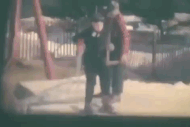Who Needs Congress or Courts With Bush in Charge?: Ann Woolner
July 28 (Bloomberg)
-- Congress passes a law that says the U.S. won't torture people. The president says OK, we won't -- unless we really need to, thus adopting an exception Congress had specifically and vociferously rejected.
Congress passes the Sarbanes-Oxley law to reform business practices. In signing it, the president issues a statement to cut back on protection for corporate whistle-blowers.
Congress passes a law telling the administration to inform it on specific matters. The president issues statements saying he won't disclose anything he doesn't think he should.
So Congress tells him to notify it when he decides to ignore a law. He repeats that he will disclose only what he thinks he should, claiming, as he always does, constitutional authority to resist.
As of July 11, President George W. Bush had said no (or, not unless I want to) to 807 provisions enacted by Congress that he signed into law, according to Christopher Kelley, a political science professor at the University of Miami, Ohio.
That number compares to some 600 provisions challenged by all of Bush's predecessors combined, says Kelley. He has been studying presidential signing statements for a decade, and his work is backed up by other scholars.
Now comes a bipartisan American Bar Association task force, which concluded this week that presidential signing statements such as Bush's are ``contrary to the rule of law and our constitutional separation of powers.''
Equal Branches
The Congress writes the laws. The president executes them. The courts decide whether they violate the Constitution. When a president claims he can rewrite a law before executing it, he is acting as all three branches.
``The original intent of the founders is that we have a system in which power would check power,'' said task force member Mickey Edwards, a former Republican House member and founding chairman of the American Conservative Union.
``If a president believes that a statute or piece of a statute is unconstitutional, it is his obligation to veto it,'' Edwards said at a news conference.
Congress then would have the chance to either sustain or overturn his veto.
Bush isn't the first president to object to a bill while signing it. That was James Monroe in 1821, according to Kelley.
Since then, presidents of both parties have done it. Jimmy Carter bucked Congress when he pardoned Vietnam draft evaders, for example.
Under the Radar
On that one, Congress sued Carter in a case thrown out of court. But for the most part, no one paid much attention to signing statements, as it has never been clear what force, if any, they carry.
``Prior to this, presidents were operating under the radar,'' says Kelley.
Bush took the practice into a whole new universe.
When he signed the anti-torture act on Dec. 30, for example, he went on at length listing provisions he says would be unconstitutional for him to obey. Same thing on appropriations bills.
``The sheer number of Bush statements does suggest some unwarranted exuberance,'' says Douglas Kmiec, a Pepperdine University law professor.
Kmiec headed the Justice Department's Office of Legal Counsel under Presidents Ronald Reagan and George H.W. Bush, helping to shape signing statements.
He defends the current president's practices, for the most part. They are, in the main, justifiable legally and hardly a cause to ring the constitutional crisis alarm, he says.
Provocative Practice
The problem, Kmiec says, is the statements often are ``too cryptic to be understood'' and therefore ``more likely to be provocative'' than effective.
See if you can figure out when Bush will withhold information Congress wants based on this excerpt, which shows up in multiple signing statements:
He will inform Congress ``in a manner consistent with the president's constitutional authority to withhold information that could impair foreign relations, national security, the deliberative processes of the executive, or the performance of the executive's constitutional duties.''
It is true, of course, that Congress sometimes passes laws that are unconstitutional. Presidents before Bush weighed whether they should execute laws so faithfully that they violate the Constitution, which trumps anything Congress enacts.
Disputing New Laws
Walter Dellinger, as head of the Office of Legal Counsel, advised President Bill Clinton to dispute new laws only when they were likely to be declared unconstitutional if the Supreme Court were given a chance.
And yet, some of Bush's signing statements repeat positions that the high court had already rejected, as in the area of affirmative action.
Pennsylvania Republican Arlen Specter, chairman of the Senate Judiciary Committee, has proposed a bill that would send these sorts of disputes to the courts if at least one chamber of Congress votes to do so.
But that bill faces political and legal hurdles. If it becomes law, it probably wouldn't survive a court challenge, says Kmiec.
Ah, but there are other ways for Congress to push back. Lawmakers can hold hearings to expose wrongdoing. They can delay presidential appointments, and they can tighten purse strings.
First, they would have to find the courage to buck the president. Congress would have to finally, after all these years, show that it is, indeed, a power separate from the White House.
Who Needs Congress or Courts With Bush in Charge?:
-
ABushismaDay
- Blue Chatterbox
- Posts: 187
- Joined: Jul 7th, '05, 08:15
Who Needs Congress or Courts With Bush in Charge?:
This bussiness will get out of Hand!
-
BigKahuna13
- Site Admin
- Posts: 6488
- Joined: Nov 5th, '04, 09:10
- Location: Under the Boardwalk
- Contact:
When he signed the anti-torture act on Dec. 30, for example, he went on at length listing provisions he says would be unconstitutional for him to obey. Same thing on appropriations bills.
Dead on right. The President's legal obligation to veto laws that he feels are unconstitutional comes from his oath of office. The part where he says that he'll "uphold and defend the Constitution of the United States"``If a president believes that a statute or piece of a statute is unconstitutional, it is his obligation to veto it,'' Edwards said at a news conference.
Read an article on the history of the veto recently. Apparently, the original intent, which Washington and a few other early Presidents stuck to, was that the veto was supposed to be used to kill potential laws that the President thought were unconstitutional. It was never intended to be used as an instrument for the President to kill laws that he personally disagreed with.
What is not possible is not to choose. ~Jean-Paul Sartre


Unfortunately, this country's populace doesn't care whether what he does is legal or not. The majority of our citizens can't even tell you the difference between the Bill of Rights and the Declaration of Independence.
At this point, I think our populace is so dumb that if the president tried to dissolve Congress tomorrow that half of them would go along with it.
At this point, I think our populace is so dumb that if the president tried to dissolve Congress tomorrow that half of them would go along with it.
[/quote]
Dead on right. The President's legal obligation to veto laws that he feels are unconstitutional comes from his oath of office. The part where he says that he'll "uphold and defend the Constitution of the United States"
Some of you were upset with Bill Clinton when he lied under oath about a BJ. It is clear that Bush lied under oath when he took the oath of office and is guilty of perjury. He should be impeached and locked up. Case closed!
Dead on right. The President's legal obligation to veto laws that he feels are unconstitutional comes from his oath of office. The part where he says that he'll "uphold and defend the Constitution of the United States"
Some of you were upset with Bill Clinton when he lied under oath about a BJ. It is clear that Bush lied under oath when he took the oath of office and is guilty of perjury. He should be impeached and locked up. Case closed!

Don't Deer Valley Killington!
http://www.myeloma.org" onclick="window.open(this.href);return false;
http://www.ffrf.org" onclick="window.open(this.href);return false;
http://www.keithrichards.com/
